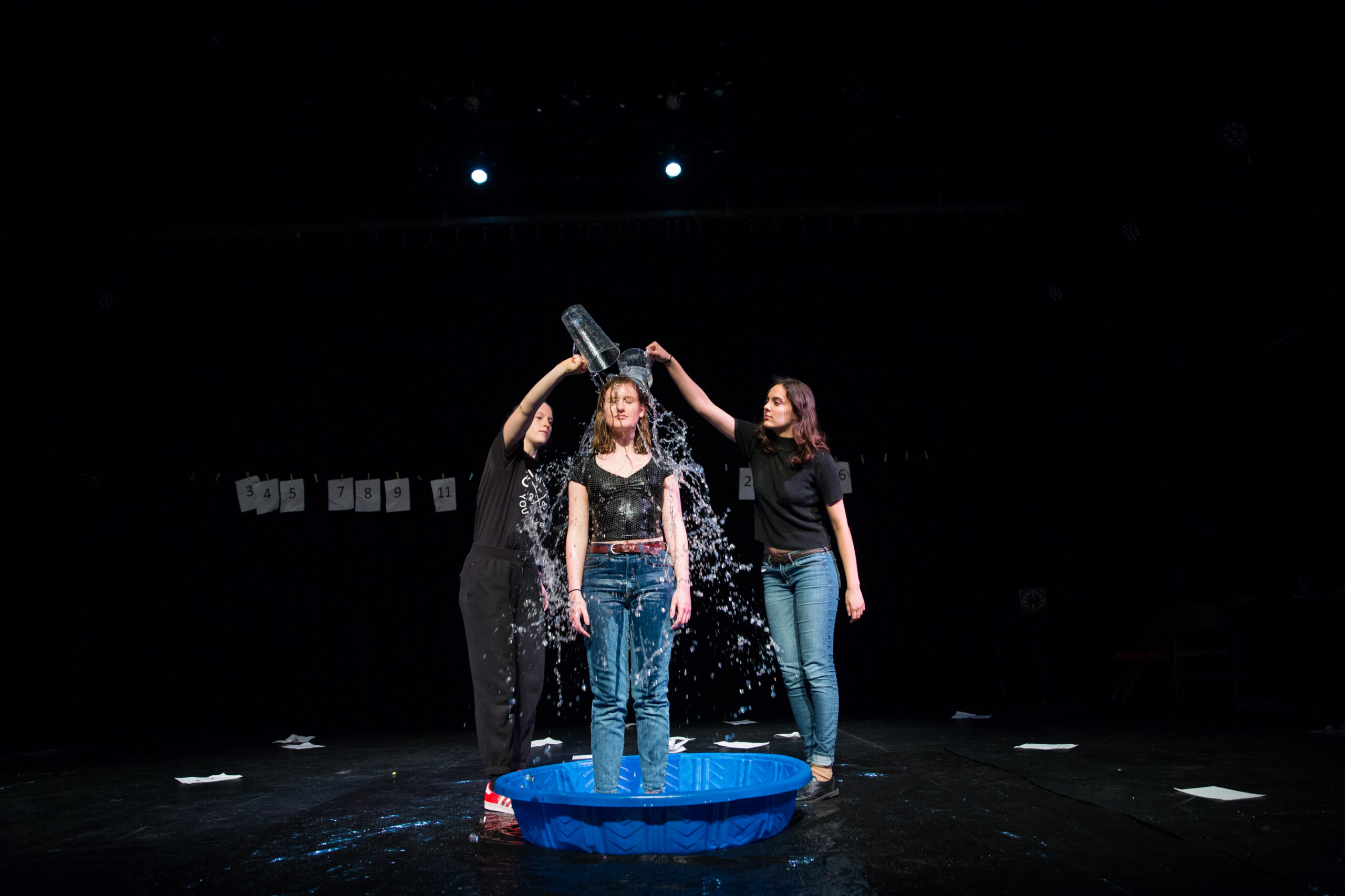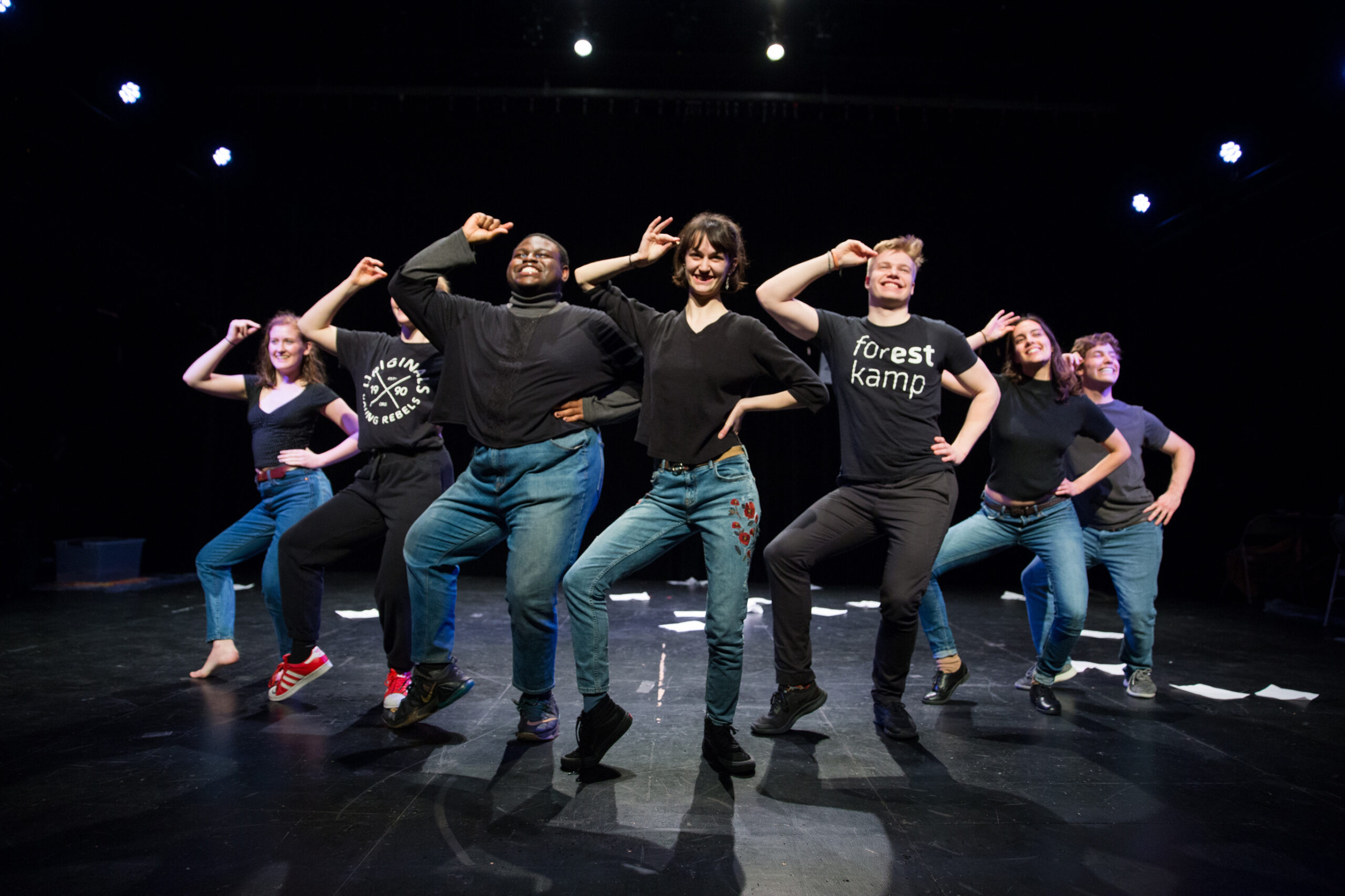‘Too Much Light’ brings Neo-Futurism to the stage
April 12, 2019
 Ann Basu
Ann BasuEven before the show begins, shouts from the audience and screams of “Curtain!” set the stage for the vivacious and fast-paced production “Too Much Light Makes the Baby Go Blind.” Tonight and Saturday, an intimate cast will take the audience through a whirlwind of 30 plays—a series of emotional, hilarious and thought-provoking storylines—in just 60 minutes.
Chicago playwright Greg Allen and a small group of Neo-Futurists first created the production in 1988, and it has undergone many renditions since. Neo-Futurism can best be described as practicing theater in settings that mimic daily life—actors play no role other than themselves, adding a deeply personal element to each performance.
Director Hugo Hentoff ’19 is the creative mastermind behind the production at Bowdoin. He studied away in Chicago last year, where the city’s Neo-Futurist theater scene inspired him to bring this creative format back to campus.
 Ann Basu
Ann Basu“All these plays are between five seconds and three or four minutes,” Hentoff said. “And they just packed all of what you would want in a play—all of the honesty and the truth and the comedy in such a short amount of time. And they did it so well.”
To pull off such an ambitious project, Hentoff had to do more than simply receive funding from Masque & Gown. He also selected 30 plays from a collection of several hundred and formed a collaborative group of actors, who each contribute something unique to the production.
“I was really looking for people who were able to bring their full selves to stage, who were able to unselfconsciously be themselves in front of people,” he said.
The variety of plays takes advantage of the cast’s range and enthusiasm. From touching, romantic encounters to an absurdly comical dance line, actors challenge the traditional boundaries of theater and approach the stage with unmatched energy. This style of theater poses challenges in more ways than one—not only must performers speedily prepare props between scenes, but the order of plays is determined completely by yells from the audience.
This actor-audience relationship is crucial to the development of each play. In fact, there are multiple plays in which audience members are asked to determine the fate of an actor or even join the cast on stage.
“It’s so exciting. Because every single time [a play] is really relying on an audience member it’s completely different,” Hentoff said.
Clay Starr ’19 is closing out his Bowdoin acting career in Hentoff’s play. For Starr, one of the most difficult challenges is transitioning between plays, which range drastically in emotional content.
“You have no time to get from that emotional state to the other emotional state … but somehow you just gotta do it,” he said.
The dynamic between the cast of seven actors—forged through many hours of auditioning and rehearsing—is especially important to make each transition.
“There’s an element of responsibility to it,” Starr said. “You kind of just have to trust each other to figure it out.”
Katherine Pady ’21 echoed the importance of having a cohesive group for each performance. If the group is in the wrong state of mind, it can affect the show. Luckily, she said, that’s usually not the case with this cast.
“Every time we put on a show, every time we’re backstage, I think we really are able to just channel and bring out the best of ourselves when we’re with each other … and I think we’ve definitely formed this little family,” said Pady.
“Too Much Light Makes the Baby Go Blind” will play at 7:00 and 9:15 p.m. tonight and Saturday night in Wish Theater.

Comments
Before submitting a comment, please review our comment policy. Some key points from the policy: